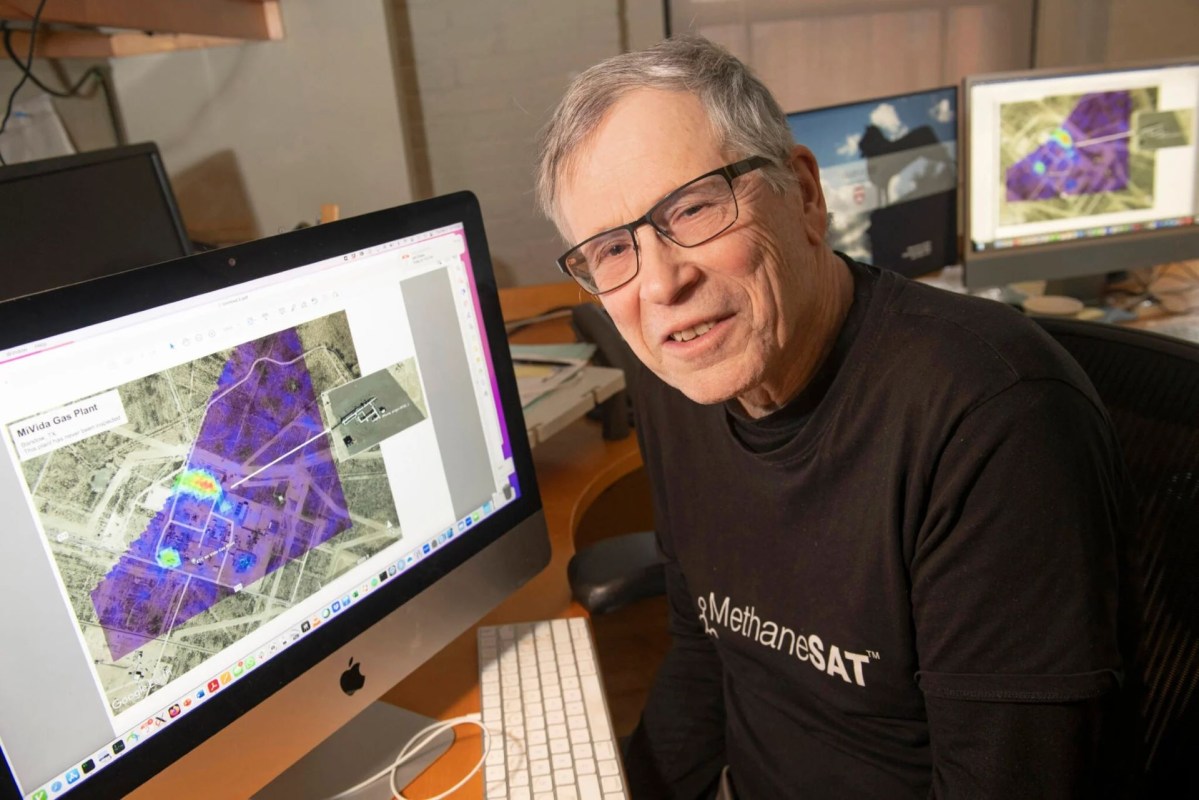Meet Steven Wofsy, atmospheric scientist, decades-long climate change investigator, and Harvard professor. At the age of 76, he could be enjoying retirement. Instead, he has an active lab and is the principal investigator for the project MethaneSAT, which has game-changing potential and is a result of a collaboration led by the nonprofit Environmental Defense Fund (EDF).
Wofsy very clearly believes in his work and finds pride and delight in his field. "The reason I'm not retired is that this is obviously way too important — and way too much fun," Wofsy said.
MethaneSAT, which is set to launch early in 2024, is a methane-sensing satellite that is more precise than its predecessors. It will enable scientists to track methane emissions and their sources, providing vital data for methane reduction efforts.
Wofsy and Steven Hamburg, EDF chief scientist, said that the project arose both out of frustration with the government's inaction as well as from the realization that it could have substantial and important short-term effects on climate change.
Methane bears responsibility for just about 30% of global warming, but what makes it particularly important is its lifetime, which is a short few decades compared to CO2's centuries-long presence in the atmosphere. Methane is also more than 25% more effective than CO2 at trapping heat, according to the EPA. This means that the effect of methane over 100 years will be lower than CO2's, but higher over 20 years, according to Hamburg, so getting rid of more methane is vital to slowing global warming in the short term while longer-term solutions are realized.
Wofsy recognized the importance of methane decades ago, and he's getting a chance to tackle it head-on with MethaneSAT, which he first became involved with in 2015. The project aims to reduce global methane pollution from gas and oil facilities by 45% by 2025 and by 70% by 2030.
While these goals could be perceived as ambitious, Wofsy remains confident given his belief in the project and its technology and the incentivization for corporate buy-in. MethaneSAT will detect methane at a higher resolution than existing satellites and will enable researchers to determine methane concentrations, trace their sources, and track changes over time. It will cover about 80% of oil and gas companies' global production.
This data could drive action and responsibility from oil and gas companies, but if it's not enough, there are other incentives to encourage them. Momentum for lessening methane leaks has been growing since a global pledge to reduce methane pollution was adopted at the 2021 climate summit in Glasgow, and in 2022 the United States approved climate change action that includes a Methane Emissions Reduction Program in the Inflation Reduction Act. The impacts of MethaneSAT could be invaluable.
Steven Wofsy sees reducing methane in the atmosphere as essential to combating global warming –– enough to devote his retirement years to seeing it through.
Join our free newsletter for weekly updates on the coolest innovations improving our lives and saving our planet.









